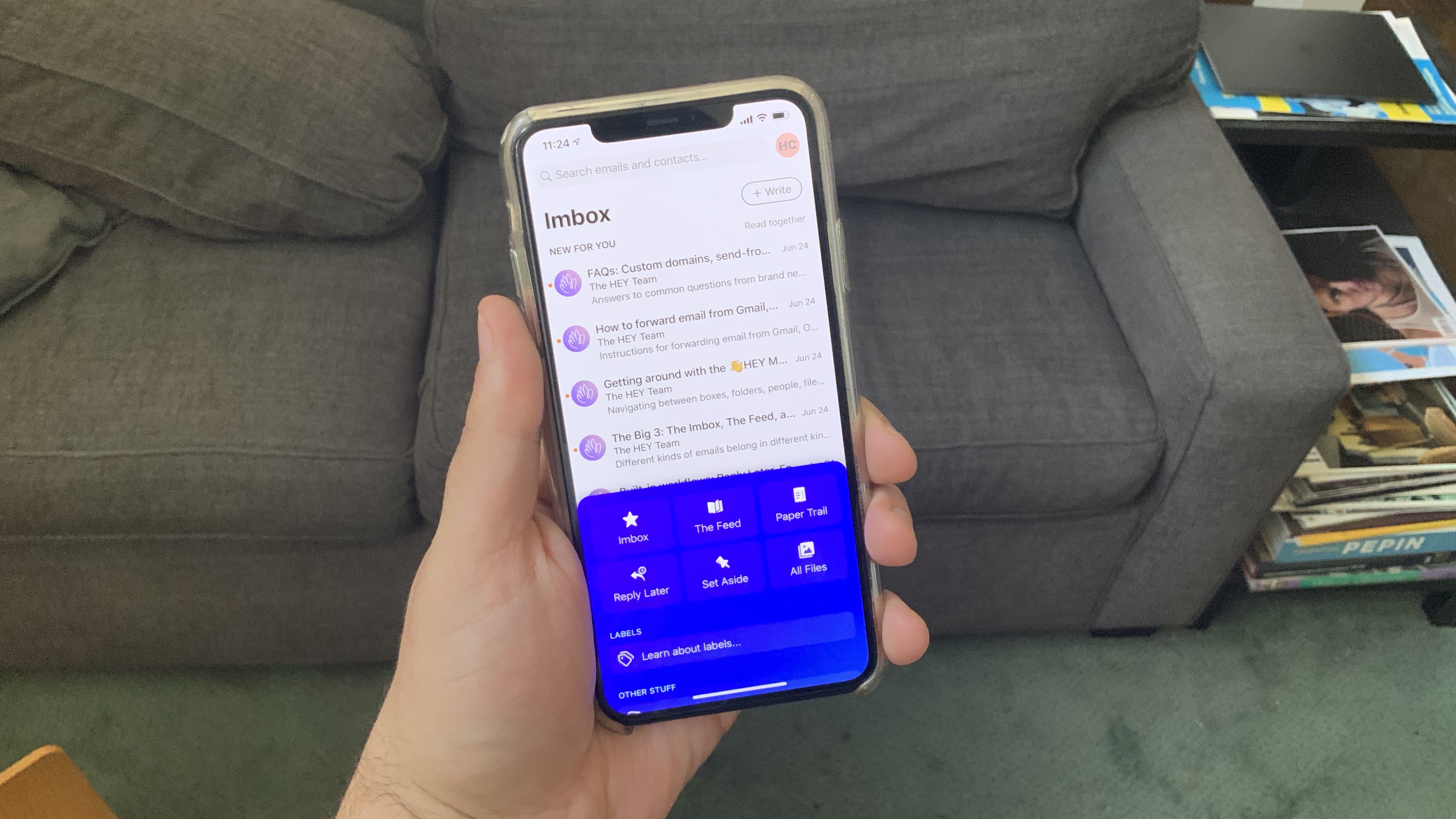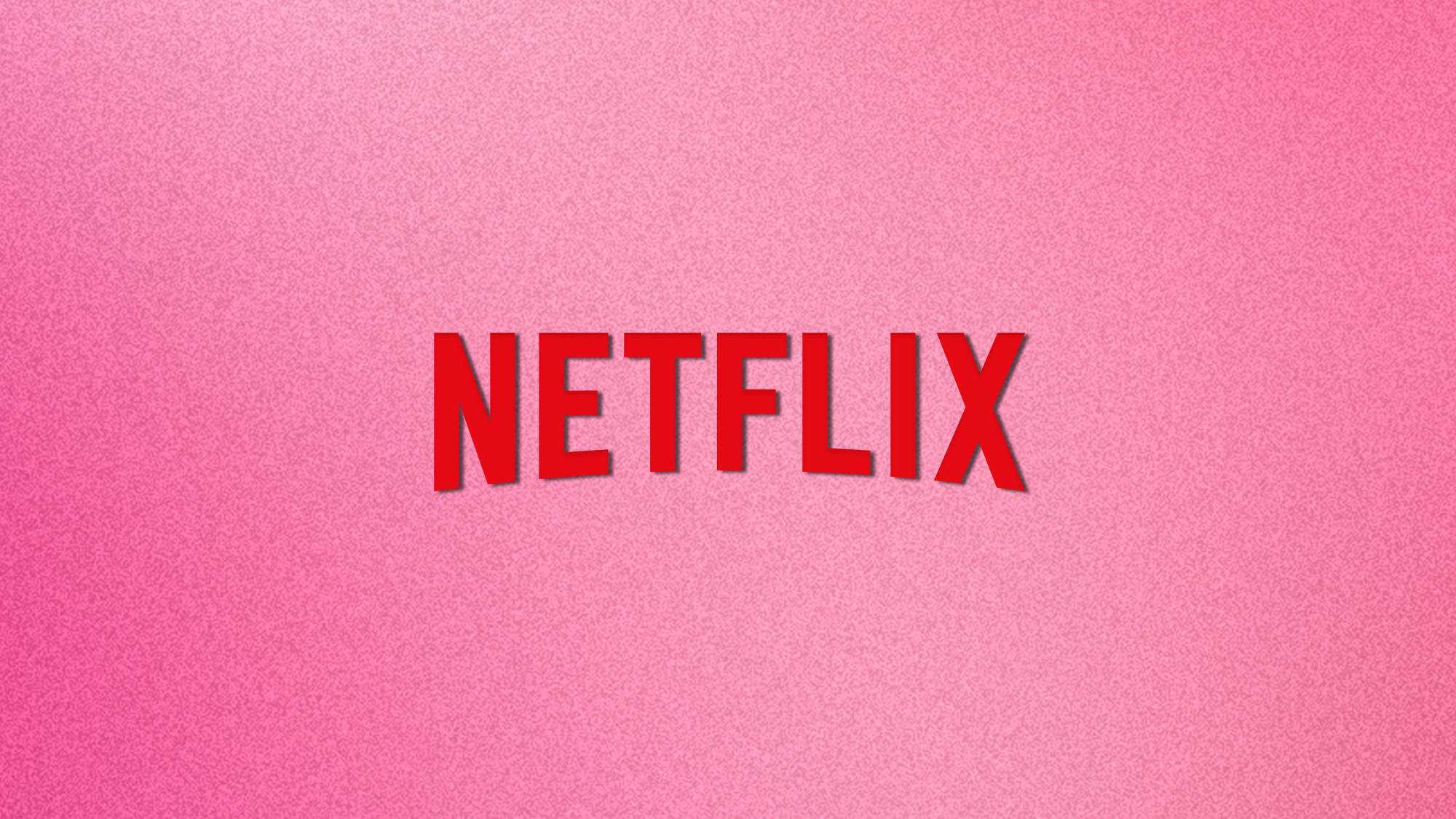Hey email app is finally on iPhone App Store: What went wrong
Here's what you need to know about the Hey email app that ran afoul of Apple's App Store rules

Here at Tom’s Guide our expert editors are committed to bringing you the best news, reviews and guides to help you stay informed and ahead of the curve!
You are now subscribed
Your newsletter sign-up was successful
Want to add more newsletters?

Daily (Mon-Sun)
Tom's Guide Daily
Sign up to get the latest updates on all of your favorite content! From cutting-edge tech news and the hottest streaming buzz to unbeatable deals on the best products and in-depth reviews, we’ve got you covered.

Weekly on Thursday
Tom's AI Guide
Be AI savvy with your weekly newsletter summing up all the biggest AI news you need to know. Plus, analysis from our AI editor and tips on how to use the latest AI tools!

Weekly on Friday
Tom's iGuide
Unlock the vast world of Apple news straight to your inbox. With coverage on everything from exciting product launches to essential software updates, this is your go-to source for the latest updates on all the best Apple content.

Weekly on Monday
Tom's Streaming Guide
Our weekly newsletter is expertly crafted to immerse you in the world of streaming. Stay updated on the latest releases and our top recommendations across your favorite streaming platforms.
Join the club
Get full access to premium articles, exclusive features and a growing list of member rewards.
The Hey email app and service went from curious alternative to Gmail to talk of the app developer town in a matter of days. And it's also shined light on some contentious debates between Apple and the developers who create apps for its platforms.
Developed by the folks behind Basecamp, a project management and team communication app that predates Slack and all of the copy-Slacks, Hey declared war on the idea that everyone should be allowed easy entry into your inbox. Yes, communication is good, but does every single brand and marketing firm on earth deserve instant access to you?
- What are the best email services?
- Everything you need to know about the iPhone 12
- Our guide to the best email apps
When I first heard about the Hey email app, on the Rocket podcast where Basecamp founder David Heinemeier Hansson revealed that motive behind the app, I knew I wanted to test it out.
In short, Hey divides the email experience between The Imbox —yes it's called that because it's where your Important emails are — The Feed (newsletters and stuff you might care about) and The Paper Trail, (the place you keep all the damn receipts you get online).
Oh, and there's also The Screener. That's where you get to block or accept email by sender. That way, you get to be the bouncer and keep no-good emailers away for good. That might sound like work for some, or it might sound like the ultimate way to clean up for others.
Unfortunately for Hansson and and anyone who enjoys that approach to email, the Hey email app hit the headlines this month for all the wrong reasons.
Hey email app: Rejected updates
One day after Hey launched, Apple reportedly flexed its muscle as the owner of the iOS App Store. While Apple didn't announce things publicly, Hansson jumped to Twitter to reveal the behind-the-scenes story, saying Apple had rejected app updates that would fix bugs and add new features.
Get instant access to breaking news, the hottest reviews, great deals and helpful tips.
Of course, Hansson says, if his company were to hand over a substantial cut of its revenue, Hey would be allowed to stay. This was all very bad timing for Apple, as the E.U. European Commission opened its investigations into the App Store rules on that same day (June 16). It also happened to be less than a week before Apple's annual developer conference, potentially causing a source of friction at the event.
Wow. I'm literally stunned. Apple just doubled down on their rejection of HEY's ability to provide bug fixes and new features, unless we submit to their outrageous demand of 15-30% of our revenue. Even worse: We're told that unless we comply, they'll REMOVE THE APP.June 16, 2020
The 15-30% Hansson references is the cut Apple typically takes from in-app purchases. Often times apps charge more on the App Store to make up for this cut. YouTube TV, for example is $49.99 per month if you buy it directly, but $54.99 per month if you subscribe through an Apple app.
Apple stuck to its guns when its Phil Schiller, senior vice president of worldwide marketing, told Tech Crunch that Apple's issue stems from the experience that a user would have upon downloading the app. Because Hey would sell it subscriptions outside of the app to avoid Apple's tithe, Schiller said, "you download the app and it doesn’t work, that’s not what we want on the store." On Rocket, Hansson explained that Basecamp is a relatively small organization and didn't have the wherewithal to surrender such a cut.
When you downloaded Hey, at first, you were prompted to log in with your account credentials. Those who didn't have a username and password would just have to figure out how to get a subscription. This is because Apple's rules say you're not allowed to market the alternative ways to pay for the service.
As the Apple-Hey feud hit the news, folks brought up Netflix and Spotify, and other apps that require you to go outside of the app to get an account to make it work. Those apps, which are categorized as "reader" apps (ostensibly because their features are limited to the consumption of content) were the exception, in Apple's mind. Email apps could not fall under this category.
The ire from the developer community surrounding Apple pushing Hey to fold to its ways was visible to anyone watching the more vocal members, with Accidental Tech Podcast co-hosts John Siracusa and Marco Arment being two of the biggest names lamenting Apple's rules. Arment referred to Apple as "incredibly power-hungry and shockingly stingy," when discussing Hey.
The fight came to a pause hours before Apple's big keynote that kicks off its Worldwide Developers Conference (WWDC 2020), as Apple allowed an update to the app, which came with a temporary Hey account that's a randomized address. That allows the app to be functional just from being downloaded from the app store. Hey's creators also threw in an enterprise version of Hey, dubbed Hey for Work, that made the app more like Basecamp. You still don't pay for Hey through the app.
Hey can be downloaded from the App Store.
Hey email app: Pricing
The Hey email app costs $99 per year. You might find that expensive, but Hey says that free email services, such as Gmail are not really free: "you pay by giving up your privacy and valuable personal data." Hey provides a 14-day free trial so you don't need to commit so much money up front.
Hey's privacy-first approach doesn't end there, as it stops "spy pixels" from tracking your activity. Hey offers even more pricey options, for super-short two-character ($999 per year) and three-character ($349 per year) email addresses, such as hi@hey.com and hey@hey.com.
Hey email app: Reviews
Even though the Hey email app is still relatively young (less than a month old) reviews are already out. Those reviews recommended using the trial period before investing the $99 annual fee. Here are summaries of two reviews that we found online:
- Kaya Thomas at OneZero wrote "I believe Hey is going to save me a lot of time and frustration, so for me the annual fee of $99 is worth it, and it’s more affordable (and safer) than Superhuman, the popular email client that’s been in private beta for six years at $30/month."
- Harry Guinness at ReviewGeek wrote "Personally, I’m a big fan of how Hey handles things. It works very well for me. But I’m hard-pressed to recommend it for the vast majority of people."
Want to try Hey for yourself? You can sign up for its 14-day free trial here.

Henry was a managing editor at Tom’s Guide covering streaming media, laptops and all things Apple, reviewing devices and services for the past seven years. Prior to joining Tom's Guide, he reviewed software and hardware for TechRadar Pro, and interviewed artists for Patek Philippe International Magazine. He's also covered the wild world of professional wrestling for Cageside Seats, interviewing athletes and other industry veterans.
 Club Benefits
Club Benefits










